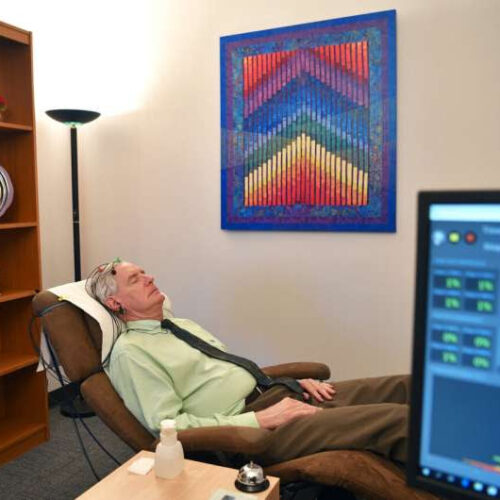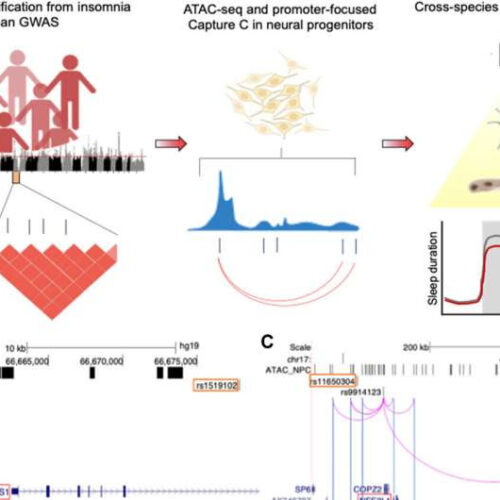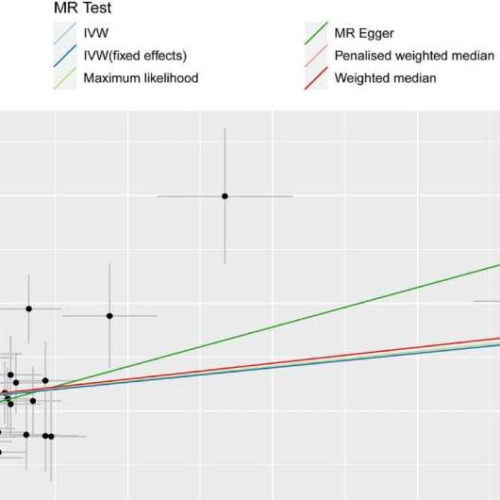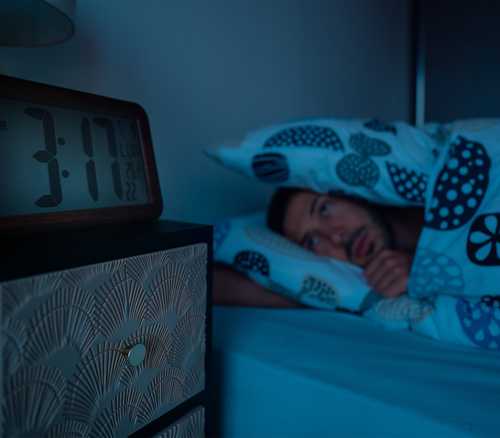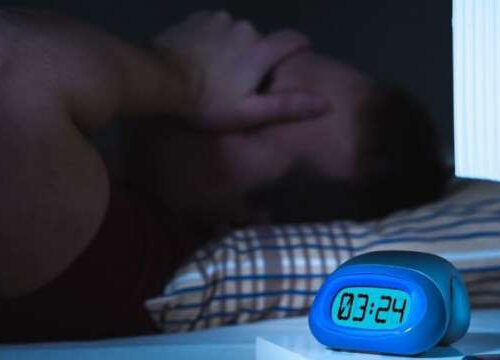FEBRUARY 15TH, 2023 CONN HASTINGS MEDICINE Researchers at Wake Forest University School of Medicine have tested a closed-loop acoustic stimulation neurotechnology in its ability to treat insomnia. The device in question has been developed by Cereset, a medtech company headquartered in Arizona. Insomnia is not just unpleasant, but can have significant long-term health consequences, including an...
Tag: <span>Insomnia</span>
Non-invasive neurotechnology shown to reduce symptoms of insomnia and improve autonomic nervous system function
by Atrium Health Wake Forest Baptist Cereset Research with Standard Operating Procedures (CR-SOP) is the evolution of HIRREM, or high-resolution, relational, resonance-based electroencephalic mirroring, a noninvasive, closed-loop technology that uses scalp sensors to monitor brainwaves and software algorithms to translate specific frequencies into audible tones of varying pitch. Credit: Wake Forest University School of Medicine A good...
Scientists make progress in decoding genetics of insomnia
by Shana K. Hutchins, Texas A&M University Translating human GWAS signals to functional outcomes with variant-to-gene mapping. (A) Leveraging existing insomnia human GWAS loci, we identified proxy SNPs in strong linkage disequilibrium with sentinel SNPs using both genome-wide ATAC-seq and high-resolution promoter-focused Capture C data from iPSC-derived NPCs and then performed high-throughput sleep and activity...
Study finds that insomnia could cause lower back pain and vice versa
by Ingrid Fadelli, Medical Xpress Individual estimates about the potential causal effect of insomnia and low back pain. The x-axis shows that the single nucleotide polymorphism (SNP) effect on insomnia in (A) and the y-axis shows the SNP effect on low back pain; (B) shows the results of the reverse causal inference. Several methods of...
New study evaluates pharmacological treatment for insomnia
by University of Oxford Credit: CC0 Public Domain Two drugs, eszopiclone and lemborexant—both not currently licensed for the treatment of insomnia in the UK—were shown to perform better than others, both in the acute and long-term treatment of insomnia in adults, according to a new Oxford study exploring the pharmacological management of insomnia. The new study,...
Insomnia in midlife may manifest as cognitive problems in retirement age
UNIVERSITY OF HELSINKI IMAGE: ACCORDING TO THE STUDY, LONG-TERM INSOMNIA SYMPTOMS AND LATER POORER COGNITIVE FUNCTIONING HAVE A CLEAR CONNECTION. CREDIT: MOSTPHOTOS The Helsinki Health Study at the University of Helsinki investigated the development of insomnia symptoms in midlife and their effects on memory, learning ability and concentration after retirement. The follow-up period was 15–17...
Insomnia could increase people’s risk of type 2 diabetes, study finds
New research has found that people who have difficulty getting to sleep or staying asleep had higher blood sugar levels than people who rarely had sleep issues. The University of Bristol-led findings suggests insomnia could increase people’s risk of type 2 diabetes and that lifestyle or pharmacological treatments that improve insomnia could help to prevent or treat...
How to safeguard your sleep from insomnia over COVID-19 worry
by Hannah Messinger, University of Pennsylvania Credit: Pixabay/CC0 Public Domain At this point in the pandemic, it may not come as a surprise that the impacts of COVID-19 have included increases in mental health issues such as depression, anxiety, and substance use. Along with those issues, recent reports show that sleep has been impaired as...
Treatment for insomnia in women with hot flashes found to be safe, efficacious
by Brigham and Women’s Hospital Credit: Unsplash/CC0 Public Domain Hot flashes and night sweats are a common cause of insomnia among peri- and postmenopausal women. Hot flashes, night sweats and insomnia are all linked to reduced quality of life and distress. Despite how common insomnia disorder associated with night sweats is, treatment options are limited....
Depression and insomnia should be treated individually
by Wiley Credit: Pixabay A common belief that insomnia is a secondary symptom of depression when they co-occur is not supported by scientific evidence, and doctors should direct targeted diagnostic and treatment attention to both disorders, according to a narrative review published by the Medical Journal of Australia. Up to 90% of patients with mood disorders also report difficulties...


